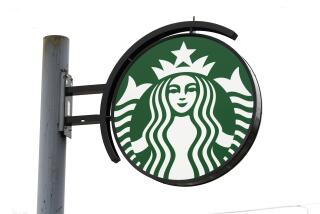American Apparel’s Dov Charney on the Bangladesh factory collapse
Say there’s a concert scheduled at a major Los Angeles venue, but that managers smell gas in the air before the show goes on.
Chances are that they will cancel the event and take a loss out of an abundance of caution, said Dov Charney, chief executive of local clothing company American Apparel.
But the same steps weren’t taken last month, when a garment factory in Bangladesh crumpled soon after workers complained of cracks appearing in the walls, Charney said. More than 600 people died in the collapse, according to several reports.
The tragedy has focused a harsh spotlight on American companies cited as customers of the facility, including Wal-Mart and J.C. Penney. Some have publicly stated that they would consider updating their supply chain safety policies.
But in a phone interview from South Korea on Monday, Charney had some choice words for his industry.
“In Bangladesh, the problem with these factories is that they’re only given contracts on a seasonal or order-by-order basis,” he said. “There’s so much pressure to perform, some of the working conditions are outrageous, almost unbelievable. It has completely stripped the human element from the brands.”
Often, he said, the American apparel behemoths contracting with factories in developing countries don’t allow for delays, “even acts of God.”
“The buyer has no view of what is happening on the other side,” Charney said. “It’s such a blind, desensitized way of making clothing.”
Charney lambasted companies that advertise very inexpensive clothing – what he calls “fast fashion” – as selling “virtually stolen goods” probably made by underpaying disadvantaged workers abroad. American Apparel’s items are significantly pricier – tennis skirts for $54, short-sleeved crew neck shirts for $20.
“It could be that over time, things will be made in a better fashion throughout the industry,” Charney said. “But there will be a big cost increase.”
Charney is well known as an outspoken advocate for the Made in the U.S.A. movement and for immigration reform. American Apparel’s clothing is manufactured out of a factory in downtown Los Angeles.
In a note posted recently on the American Apparel website, Charney emphasized that the company is “sweatshop-free.”
But it’s far from conflict-free. In recent years, the company has had to remove a third of its workforce after employees were found without required documentation. American Apparel ads also have been accused of being too racy for public display. And Charney has faced several lawsuits, including several alleging sexual harassment.
ALSO:
Bill would create ‘Made in California’ label
Ralph Lauren promises to make 2014 Olympic uniforms in America
American Apparel fights the ‘made in America’ fight. For how long?







